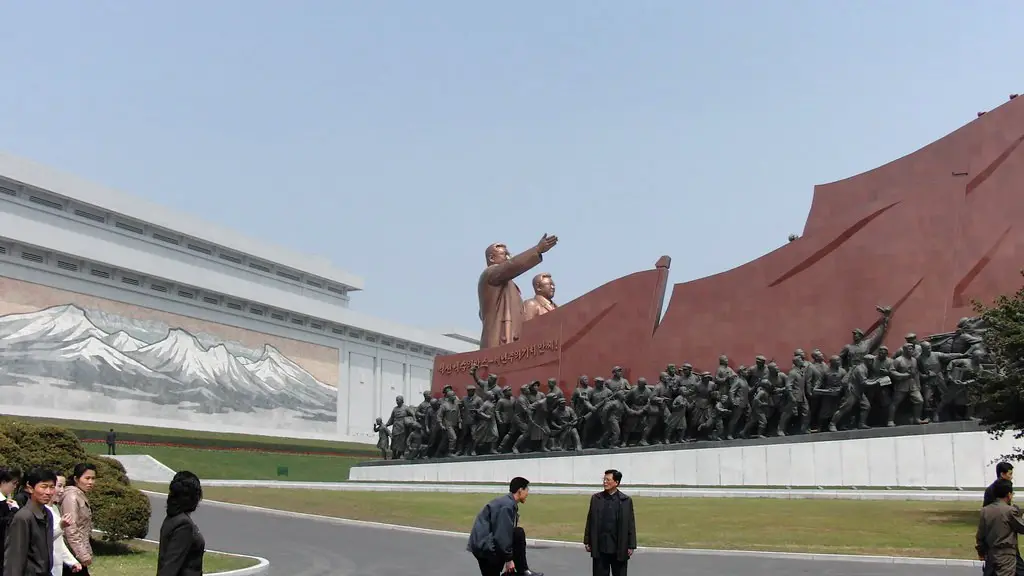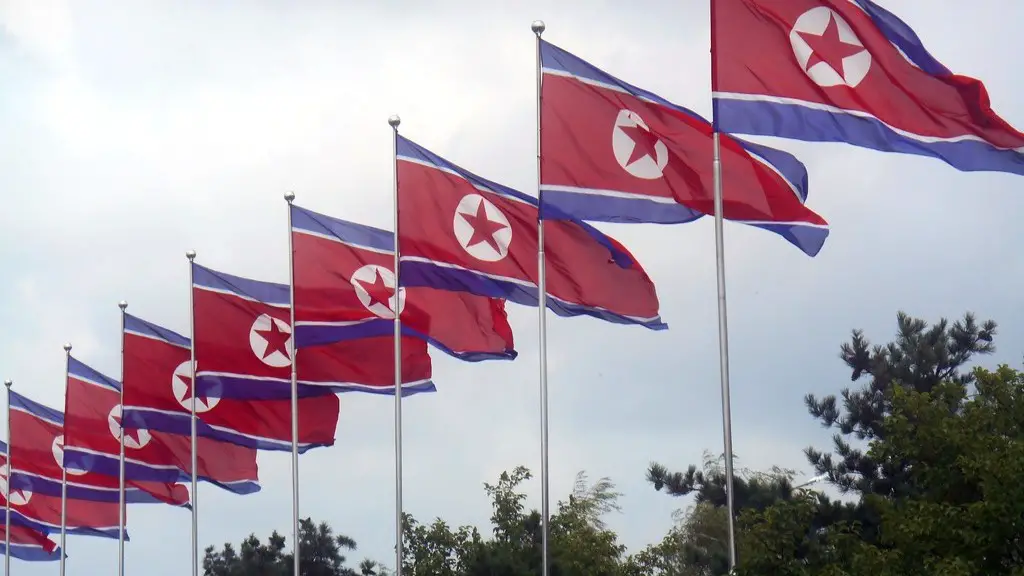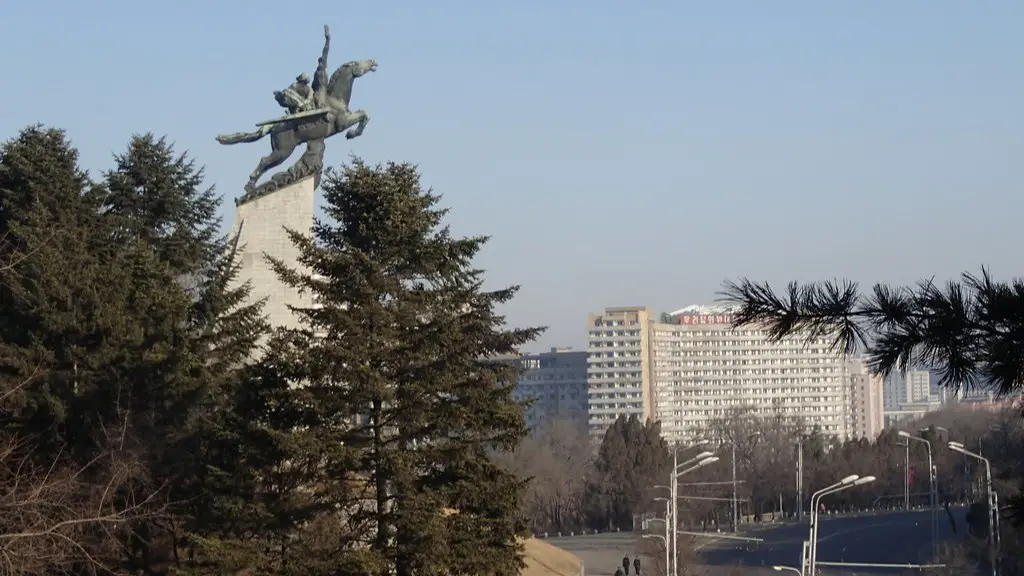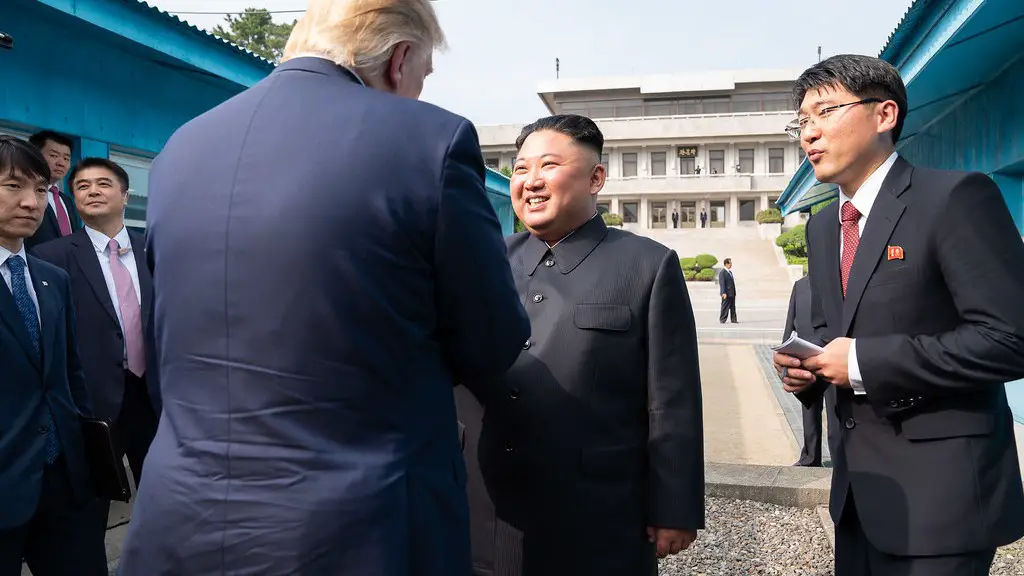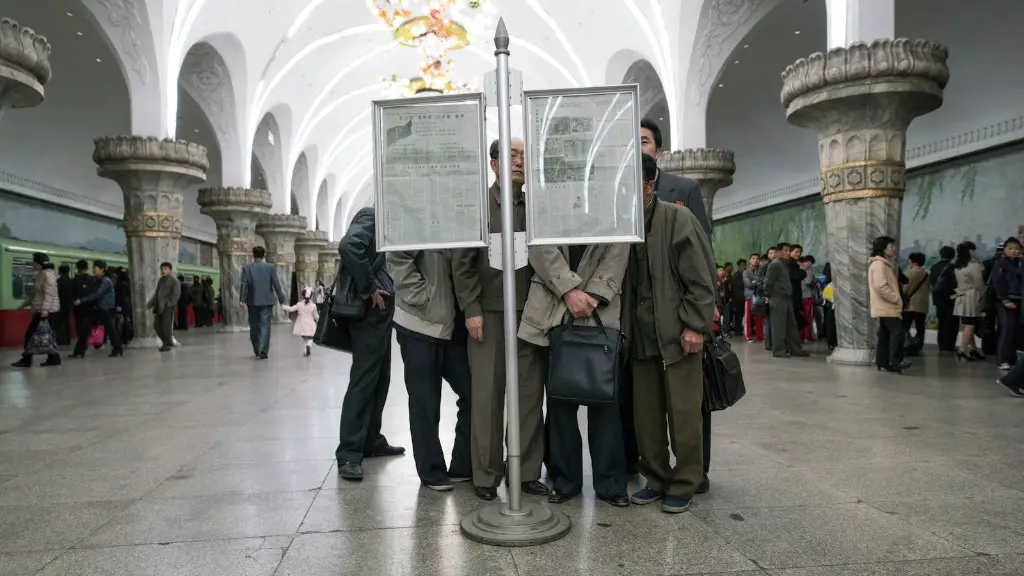Kim Jong-Un: The Great Leader of North Korea
Kim Jong-Un is the de facto leader of North Korea and is known as the “Supreme Leader” of the country. He serves as both head of state and ruler of the ruling Workers’ Party of Korea. Kim has remained a controversial figure since taking power in 2011, but he has managed to win the hearts and minds of his countrymen through his nationalist fervor, uncompromising style of rule, and staunch defense of North Korea’s sovereignty. He has continually sought to strengthen the nation’s nuclear capabilities, often at the expense of international sanctions, and promote the country’s self-reliance in an increasingly global world.
The North Korean government frequently portrays Kim as an embodiment of North Korea’s ideals and values. His official titles include “Supreme Leader of the Party, State, and Military” and “Supreme Leader of the People”. He commands the troops, speaks into policy decisions, and is the public face of the nation. His message is one of patriotism and solidarity, of defending the country at all costs, and of achieving prosperity and peace through self-reliance and internal development.
The international community has often expressed concerns about Kim’s aggressive policies, particularly his treatment of human rights and his insistence on the use of nuclear arms. Moreover, there has been criticism of his government’s economic policies, including the lack of democracy and the concentration of wealth among a small elite. However, many North Koreans view Kim Jong-Un as a great leader who has increased the nation’s standing in the world and protected the country from outside threats.
Despite his controversial policies, Kim Jong-Un has made many positive contributions to North Korean society. For example, he has focused on improving North Korea’s infrastructure and securing foreign investment. He has also made efforts to improve the country’s education system and to create employment opportunities. Additionally, he has overseen the implementation of a Five-Year National Development Plan, which has seen North Korea’s gross domestic product grow significantly.
Kim Jong-Un is highly respected in North Korea, where he is seen as a effectively ruler who embodies the nation’s desire for self-determination, strong defense capabilities, and economic advancement. Despite his controversial policies, Kim has managed to cultivate a deep sense of loyalty and collective responsibility in his people. He has largely managed to maintain the respect of his supporters, many of whom view him as an authoritative figure and capable leader.
Foreign Relations
Kim Jong-Un has taken a hard line in foreign relations, often seeking to protect North Korea’s sovereignty and its right to pursue its own interests without outside interference. He has sought to strengthen ties with countries such as China and Russia, and has also improved relations with South Korea. He has also used a combination of carrot and stick diplomacy to deter foreign meddlers and influence policy decisions in the region. His foreign policy has generally been centered around military-first politics, with a focus on the strengthening of national defense capabilities.
Kim has also sought to create a better understanding of North Korea within the international community, most notably through his summits with U.S. President Donald Trump. Kim’s overtures of peace were seen as a major step forward in improving relations between North Korea and the United States, and his willingness to negotiate and compromise has been widely praised by the international community. At the same time, however, Kim has continued to defy UN resolutions with regard to the nation’s nuclear weapons program.
While Kim Jong-Un’s foreign policy approach has been widely criticized, the Supreme Leader has been a formidable force in international relations. He has managed to place North Korea at the center of the global stage, and has held his own against far bigger international powers. His willingness to take risks and defy internationally accepted norms has also been noted, and has likely been a major factor in his success in negotiations and diplomacy.
Final Assessment
Kim Jong-Un has been a controversial figure since taking power in 2011, but his hardline policies, uncompromising style of rule, and steadfast defense of national sovereignty have been widely praised by North Koreans. His countrymen and women view him as an incarnation of North Korean patriotism and values, and see him as a capable leader and defender of the nation’s interests.
International reaction to Kim Jong-Un’s rule has been mixed. He has largely managed to maintain positive relations with many countries, including the U.S., and has managed to hold his own against far bigger international powers. At the same time, however, he has often been criticized for his aggressive policies and human rights abuses.
The legacy of Kim Jong-Un will undoubtedly be debated in the years to come. But there is no denying that he has been an effective leader and a major player in international relations. His hardline approach to diplomacy has been effective in advancing North Korea’s interests, and his efforts to protect the nation’s sovereignty have been widely praised by his people and respected by the international community.
Domestic Policies
Domestically, Kim Jong-Un has focused on strengthening the nation’s defenses and pursuing policies designed to increase economic productivity and reduce poverty. He has sought to improve North Korea’s infrastructure, strengthen its manufacturing capabilities, attract foreign investment, and open the country up to global trade. He has also implemented a Five-Year National Development Plan, which has seen North Korea’s gross domestic product grow significantly.
Kim has also focused on improving the country’s education system. He has sought to increase access to higher education and improve the quality of education by adopting more modern teaching methods. His efforts have been met with considerable success, as the country has seen a steady improvement in its scholastic achievements.
Kim has also sought to improve living standards and reduce poverty. He has sought to tackle inequality by providing access to health and social services, introducing wage increases, and launching various programs aimed at increasing employment opportunities. Additionally, he has worked to improve access to electricity and clean water for rural areas.
In many ways, Kim Jong-Un has been a successful leader in his efforts to improve the country’s economic and social well-being. Nonetheless, it is clear that challenges remain, and that far more needs to be done in order to bring about widespread positive changes in North Korea.
Internal Affairs
Kim Jong-Un has focused on strengthening the nation’s internal security apparatus in order to consolidate his power and stifle dissent. He has overseen the implementation of an increasingly authoritarian government, in which discontent and opposition to the government have been met with harsh repression. This authoritarianism has been bolstered by Kim’s insistence on a vast internal security apparatus, as well as his use of targeted propaganda and tight control of society’s information outlets.
Kim’s hardline stance has been met with criticism from human rights organizations. His government has been accused of a wide range of human rights abuses, including torture, arbitrary detention, and forced labor. However, despite these criticisms, Kim retains the loyalty of a large portion of the population, and internal opposition to his rule has largely been subdued.
Kim Jong-Un has also sought to strengthen the nation’s ideology and to ensure that the message of patriotism and loyalty to the regime remains strong. He has revitalized the practice of the ancient Korean martial art of Taekwondo and has increased the reach of the state-controlled media. He has worked to instill a sense of national pride in North Koreans and to bolster the ideology of self-reliance and autarky.
The extent to which Kim Jong-Un has been successful in consolidating his power remains to be seen. Nonetheless, it is clear that he has been a successful leader in strengthening North Korea’s internal security apparatus and creating a sense of unity and solidarity among North Koreans.
International Perceptions
Kim Jong-Un has been a highly visible leader on the international stage. His exchange of personal letters with U.S. President Donald Trump and his high-profile summit meetings with foreign leaders have been closely watched by the international community. Though often seen as a confrontational figure, recent overtures of peace and reconciliation with the U.S. and South Korea have been seen as a major step towards peace and stability in the region.
Kim’s international standing has also been strengthened by his willingness to defy international norms and take risks in pursuit of his country’s interests. His defiance of UN sanctions and his refusal to be intimidated by larger international powers have earned him a certain level of respect in the eyes of many foreign observers.
Kim Jong-Un’s rule has been met with mixed reactions by the international community. While some view him as an aggressive and hostile leader, others view him as an effective statesman and pragmatic negotiator. Nonetheless, it is clear that his influence and importance as a global leader cannot be denied.
The Future of North Korea
The future of North Korea is uncertain, and the international community will no doubt remain divided over the country and its leader. Nonetheless, Kim Jong-Un has managed to make an impact both domestically and internationally, and he is likely to remain a major player in world affairs for the foreseeable future.
Domestically, Kim Jong-Un has made progress in strengthening the nation’s economy and increasing access to essential services. He has also managed to maintain stability and unity among the population, and has instilled a sense of patriotism and solidarity.
Internationally, Kim has made some strides in improving relations with the outside world. His negotiations with the United States and other countries have been met with considerable success, and have helped to create an atmosphere of dialogue and understanding.
It remains to be seen what the future holds for North Korea. But it is clear that Kim Jong-Un has made a significant impact and that he will continue to be a major player in world affairs.
